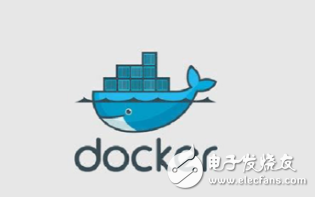Since the popularity of containers on Linux has become more difficult, understanding the differences between Linux containers and virtual machines has become more difficult. This article will provide you with details on the differences between Linux containers and virtual machines. Linux container vs virtual machine – applications and operating systems One of the first things to know about containers and virtual machines is that one is for the application and the other is for the operating system. That's why you often see some enterprise applications running on containers instead of their own virtual machines. There are some advantages to using a container on a virtual machine. One of the biggest advantages of a container is that it can reserve less resources than a virtual machine. Keep in mind that a container is essentially a single application, and a virtual machine needs more resources to run the entire operating system. If you need to run MySQL, NGINX or other services, it is necessary to use the container. However, if you need to run the full LAMP stack on your own server, it is better to run the virtual machine. Virtual machines have the flexibility to choose your operating system and upgrade as you see fit. In contrast, running a configured application container is isolated in terms of the operating system upgrade of the host. Linux container vs virtual machine – use case scenario One of the reasons I like to use containers most is to use the Linux library version. For example, suppose you need a specific version of Python to develop your application. Then, when you update on the box where the application is running, you suddenly notice that the Python version has changed, causing the application to not work properly. Another benefit of using a container is that you can put an application into a container and then run it on any operating system that supports the type of container you are running. When you want to run a different Linux distribution application. By using containers, you can run a similar application environment on a variety of different distributions. Containers provide portability. Containers are more feasible for fast cross-distribution deployments, and virtual machines are better for single application usage like running the LAMP stack. Linux container vs virtual machine – security Virtual machines provide more security than containers. This is not to say that the container cannot be protected, but rather that the default virtual machine provides greater isolation. Keep in mind that containers can share system resources and virtual machines do not. When you run the container, there are steps you can take to reduce the risk, including avoiding superuser privileges, ensuring that containers are retrieved from trusted sources, and staying up to date. Some containers are digitally signed, which helps to determine that you can get the container from a trusted source. Finally, you need to maintain a single functional responsibility for the container. Once you start combining software responsibilities under a single container, you'll find that it's best to use a virtual machine. To reiterate, containers are for single-purpose applications, and virtual machines are used for multi-purpose applications. By sticking to this approach, you will be in a better position in terms of security and overall functionality. Linux container vs virtual machine – choose the right tool Regardless of the virtual machine or container type, the key to choosing the right one for you is the ability to study each option. In the container world, Docker provides a powerful enterprise solution. This attracts companies that focus on Docker containers because the company knows that if there are any issues, they can get the support they need. Docker is a user-friendly choice for businesses, especially in Docker Swarms. Compared to Kubernetes, Kubernetes is much more complicated to set up in advanced environments. Back in the virtual machine side, I have always found that Virtualbox can provide a better desktop-oriented virtual machine environment. VMware has a variety of products on the server side. VMware has a variety of virtual machine solutions from storage to cloud server solutions, as well as other options (various hypervisors, etc.). But I think VirtualBox and VMware represent two areas of desktop-to-server virtualization. Linux container vs virtual machine – the winner is? Before deciding whether to container or virtual machine, consider the following. If you choose a container, you can run the container on the virtual machine. It is important to understand this because there are no obvious winners or losers here. In fact, the needs of these two technologies are completely different. Containers will cause constant media attention because they allow users to run more efficiently with less hardware. On the other hand, virtual machines are still the main content of servers and cloud space. I think it's worth seeing between Kubernetes and Docker Swar. I think to see how these two container management technologies work and which technologies will become standards. For a while, it felt like Docker. However, now Kubernetes occupies more camps. Perhaps over time, we will begin to see Kubernetes making headlines and becoming the number one in the container camp. Warning Light,Revolving Light,Rotary Beacon Chinasky Electronics Co., Ltd. , https://www.cctv-products.com